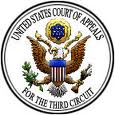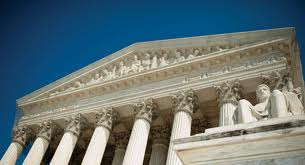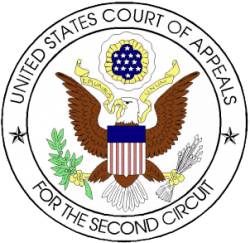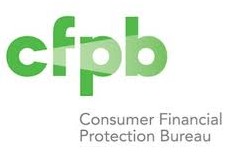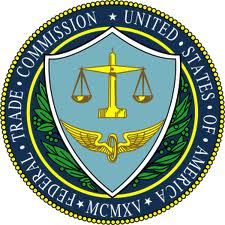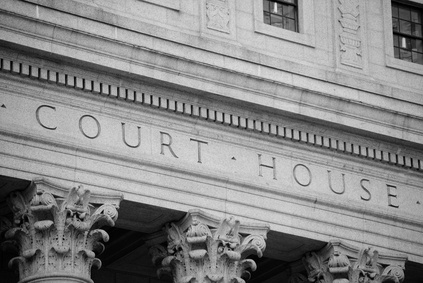Yesterday, the Third Circuit Court of Appeals held that the Telephone Consumer Protection Act (47 U.S.C. § 227) allows a consumer to revoke her prior express consent to be called using an autodialer or prerecorded voice. In its decision, Gager v. Dell Financial Services, the Circuit Court reversed a district court’s earlier finding that once a consumer provided consent to receive autodialed or prerecorded calls, a consumer cannot later revoke the consent. Persons using autodialer technology or prerecorded messages are required by the TCPA to obtain the “called party’s” “prior express consent” before making their calls. While some types of calls…
If your organization might have violated a consumer financial protection law, should it disclose that potential violation to the Consumer Financial Protection Bureau? It seems that at least one CFPB insider believes that the potential violation should be self-reported. At today’s meeting of the Consumer Financial Services Committee in San Francisco, Peggy Twohig, CFPB Assistant Director, Office of Supervision Policy, offered a few remarks on whether a covered entity should self-report conduct where the law is not clear on whether the conduct violates consumer financial protection law. In concluding that an entity should self-report even these “grey issues,” Twohig noted that covered entities…
The U.S. Supreme Court has granted certiorari in NLRB v. Noel Canning[ref]705 F.3d 490 (D.C. Cir. 2013)[/ref], a case from the U.S. Court of Appeals of the District of Columbia which held that President Obama’s recess appointment of three members to the National Labor Relations Board was unconstitutional. The decision found that a president could not exercise his power to make recess appointments during a period when the Senate was not between sessions of Congress. The Court’s decision to hear Noel Canning has direct implications for Richard Cordray, Director of the Consumer Financial Protection Bureau, who was appointed on the same day as the three NLRB commissioners whose appointments…
The Second Circuit’s recent decision in Hooks v. Forman[ref]Hooks v. Forman, Holt, Eliades and Ravin, LLC, 12-3639 (2nd. Cir. May 29, 2013). A copy of the decision is available here.[/ref] has received quite a bit of attention since it was handed down May 29. The case held that a disclosure made pursuant to 1692g(a) violated the Fair Debt Collection Practices Act when it instructed the recipient of the letter that if she wished to dispute the debt, she could only do so in writing. The decision recognized that under section 1692g, some disputes can be verbal. It also recognized that under other sections (particularly…
Some relief has come to those using preview dialers to make telemarketing or informational calls to cell phones. The court in Nelson v. Santander[ref]Nelson v. Santander Consumer USA, Inc., 2013 U.S. Dist. LEXIS 40799 (W.D. Wis. Mar. 8, 2013)[/ref] vacated its opinion of March 8, which held that preview dialers were automatic telephone dialing systems subject to regulation by the Telephone Consumer Protection Act [ref]47 U.S.C. 227[/ref]. The order was entered on June 7, on a joint motion and stipulation made by the parties. The case was dismissed, with prejudice, that same day. The order vacating the March 8 opinion is here. While…
The City of Boston will be forwarding calls from residents to the Consumer Financial Protection Bureau when the callers have questions or complaints about financial products and services, the city announced yesterday. Those who call the city’s 24-hour hotline at (617) 635-4500 with questions about such matters as credit cards, mortgages and loans will be connected with the CFPB, who will provide answers and process complaints. The CFPB screens complaints and contacts companies on behalf of consumers, requesting feedback from companies within 15 days and a resolution within 60 days.
If you are a member of the American Bar Association, check out its CLE Premier Speaker Series at www.ambar.org/freecle. Every month the series provides ABA members a free CLE seminar. This Monday has a pretty special presentation Ethical Tools to Diffuse Incivility. According to the registration page, the ABA is requesting 1.5 of Ethics CLE Credits in many states. It’s a great topic and a good way to fulfill your Ethics CLE.
The Consumer Financial Protection Bureau has issued rules on The Credit Card Accountability Responsibility and Disclosure Act (“CARD Act”) to make it easier for stay-at-home spouses and partners to get credit cards by allowing card issuers to consider household income in their applications. The 2009 CARD Act requires that card issuers determine if a consumer is able to repay a debt before opening an account or increasing a limit. Until this new regulation, the issuer was only able to consider the individual applicant’s independent income. Card issuers have six months to comply with the new regulation. The CFPB’s press release is…
The FTC has ordered the California company Skyy Consulting, Inc., which provides robocalling services to its clients as CallFire, to pay a $75,000 fine and stop all illegal telemarketing robocalls as part of a settlement between the parties. The Federal Trade Commission had charged Skyy Consulting with violating the Telemarketing Sales Rule (TSR), by helping its clients place robocalls to consumers without their written consent. The TSR does not prohibit calls that provide informational recorded messages, such as flight information, school delays, etc., nor does it apply to calls regarding the collection of a debt. Intended to stop unwanted sales…
I will be attending a joint FTC-CFPB roundtable on data integrity in debt collection on June 6, at the FTC’s Satellite Building Conference Center in Washington, D.C. Consumer advocates, industry experts, regulators and more will attend the roundtable to discuss what information is available to collectors and how it is being used in the debt collection process. Panelists will also examine the verification of disputed debts under the FDCPA and FCRA; debt collection litigation and time-barred debts.
In today’s FDCPA Decision of the Day, a United States District Court for the District of New Jersey held that an attorney’s letterhead, standing alone, is not an implied threat of litigation. The Plaintiff, a New Jersey resident, claimed that the defendant, a Georgia law firm, violated section 1692e(5) of the FDCPA (prohibiting “[a] threat to take any action that cannot legally be taken or that is not intended to be taken”) when it sent him a dunning letter. The basis for the claim was that the Georgia law firm could not file a lawsuit because none of its attorneys were licensed in New Jersey. “It is…

